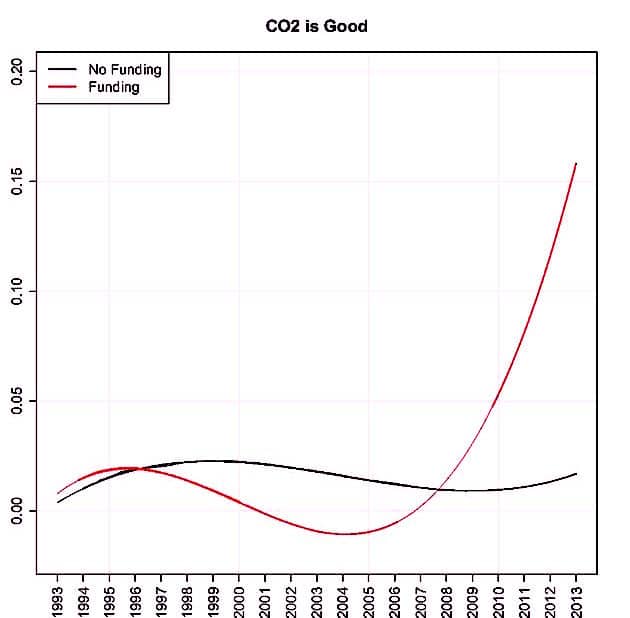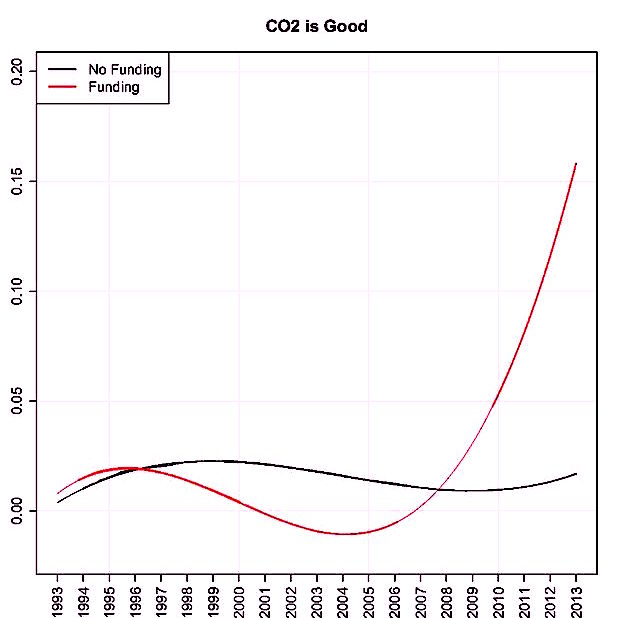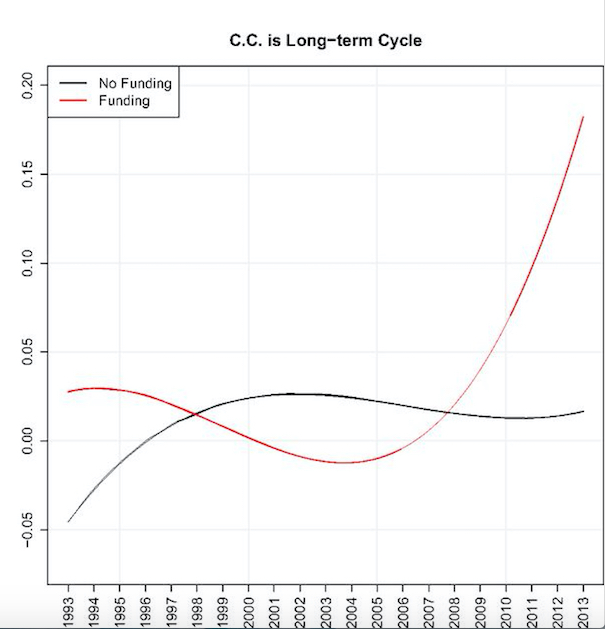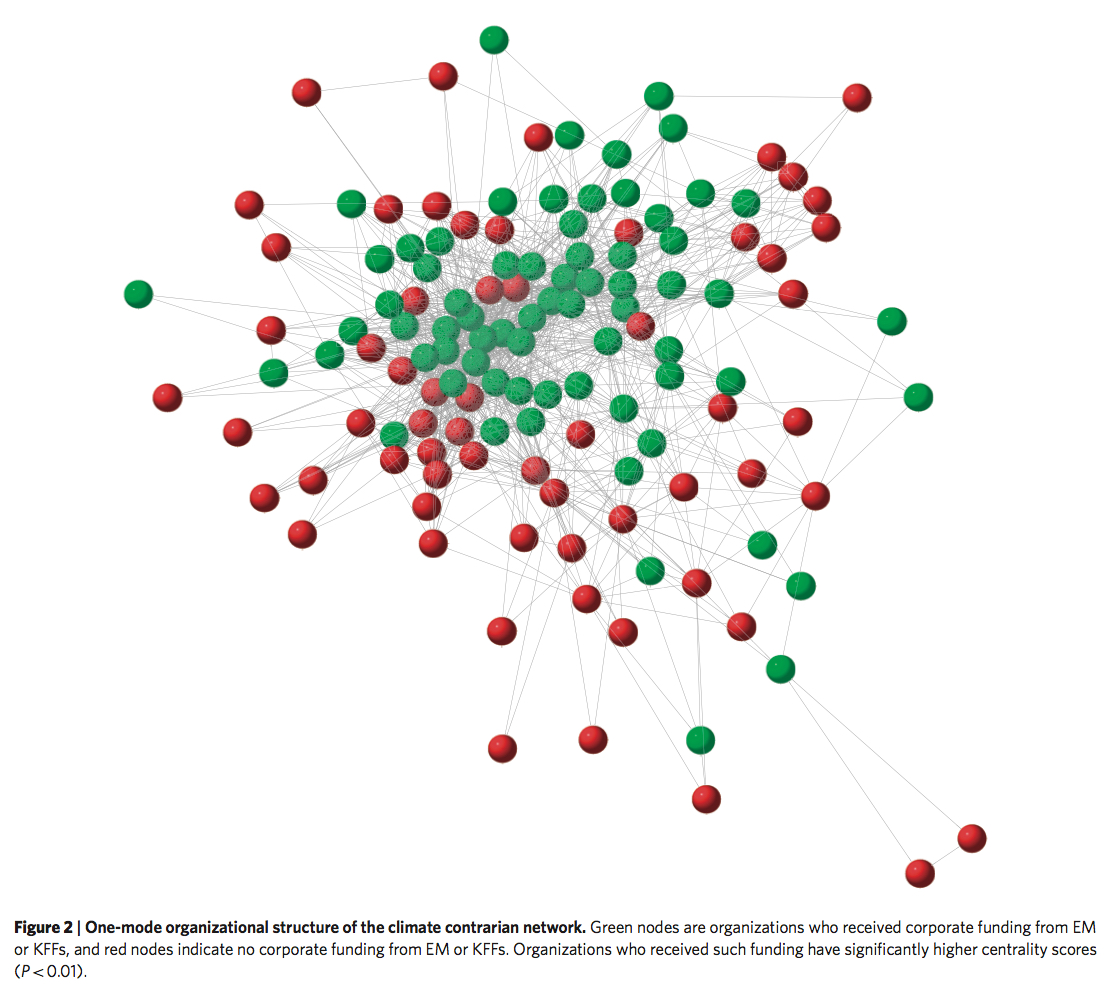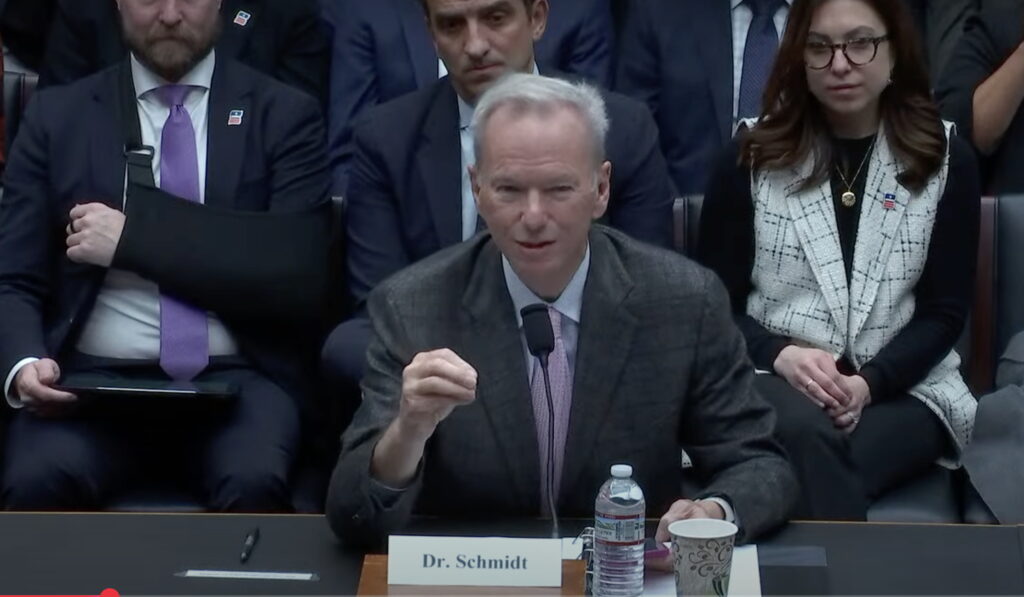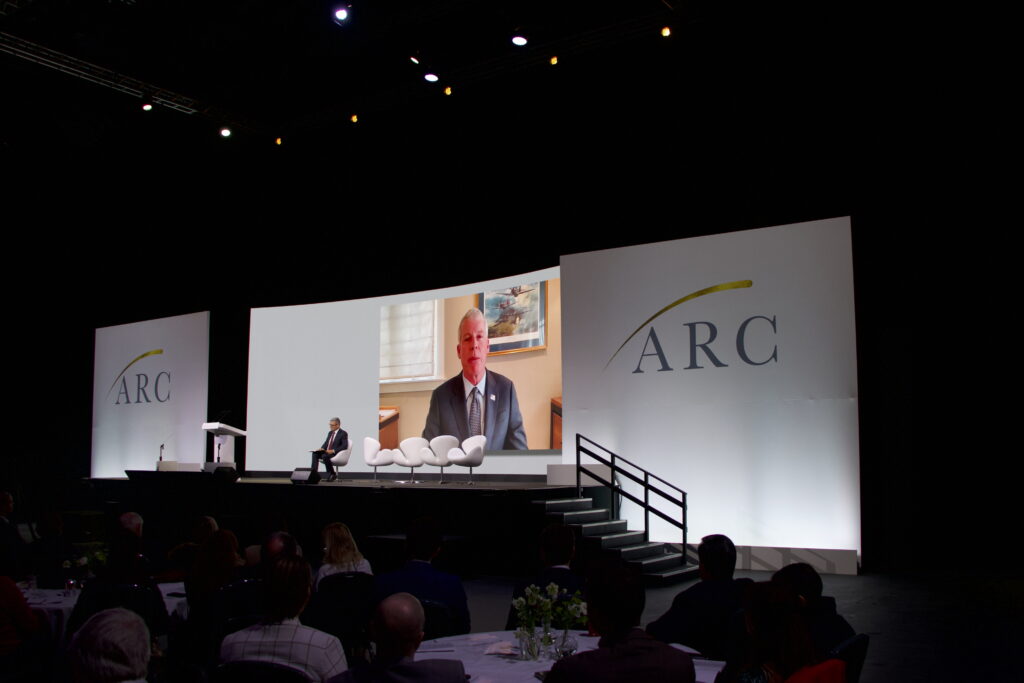What difference does influential corporate cash make to the arguments that climate science denial groups make in public?
This was a question that Yale University’s Dr Justin Farrell tried to answer in an exhaustive piece of research published late last year in the Proceedings of the National Academy of Sciences.
Farrell’s paper – Corporate funding and ideological polarization about climate change – contained this remarkable chart, which I missed at the time but reckon it deserves a bit more daylight.
So what’s it all about?
From previous academic papers and his own research, Farrell had compiled a list of 164 organisations that were part of the “climate counter-movement”.
The list includes US groups like the Committee for a Constructive Tomorrow, Cato Institute, Heartland Institute, together with a few non-US groups including the UK’s Global Warming Policy Foundation and Australia’s Institute of Public Affairs.
Then Farrell looked at which of these organisations had received money from either oil giant Exxon Mobil or from groups linked to the Koch brothers – the billionaire owners of the oil, gas and petrochemical conglomerate Koch Industries.
“Donations from these corporate benefactors signals entry into a powerful network of influence,” wrote Farrell. Farrell found that 84 of those 164 organisations were part of that “powerful network” having taken funding from Exxon, the Kochs, or from both.
Then Farrell compiled a huge dataset of “every text about climate change produced by every organization between 1993 and 2013” – that’s 40,785 texts with more than 39 million words. Thankfully Farrell didn’t have to read all that bilge.
Instead, he used some clever and sophisticated algorithms and computer content analysis to do it for him. With this dataset and method, Farrell looked at how often these 164 organisations covered particular issues.
Did the organisations that took cash from the Kochs or Exxon behave differently to those that were not funded as part of that “powerful network of influence”?
Two arguments in particular seemed to stand out. Organisations that took that influential funding were far more likely to use that disingenuous climate science denialist talking point that CO2 is good for the planet. That’s the chart above.
Another favourite contrarian talking point – that climate change was just part of a natural long term cycle rather than being driven by humans – was also more popular among the Exxon/Koch group. Here’s what that looked like.
Now of course, it’s possible that the corporate funding was not influencing the specific talking points that the organisations were using. Perhaps the fact that they liked to say “CO2 is good” simply made them attractive to funders like Exxon? That could be so, although Farrell tested other favourite subjects too.
For example, funding appeared to make no difference to the timing and frequency of attacks on former US vice president and climate change campaigner Al Gore. Nor did it make much of a difference to arguments about cap and trade laws.
In a separate study published in the journal Nature Climate Change, Farrell looked at how the 164 different groups were networked together.
In that study – Network structure and influence of the climate change counter-movement – Farrell found that organisations were more powerful in the network if they had financial ties to Exxon and/or the Koch brothers. In this chart below, the green dots are organisations with funding from at least one of those two corporate players. The red dots don’t get Koch or Exxon money.
Koch or Exxon cash seems to help place an organisation closer to the epicenter of the climate science denial movement.
But if you do take their money, then it seems you also have to be willing to deny the science linking carbon dioxide to dangerous climate change.
Subscribe to our newsletter
Stay up to date with DeSmog news and alerts


